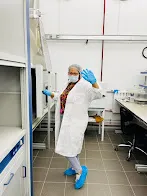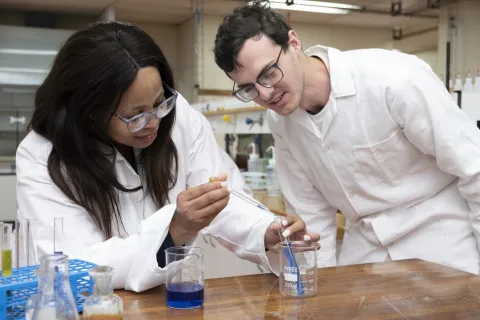Women Leading the Way in Water Solutions Through Science
In the heart of South Africa, amidst the vibrant energy of Women's Month, a remarkable woman named Dr Zikhona Tywabi-Ngeva is part of an innovative research project aimed at addressing critical environmental challenges, particularly in water-scarce regions like Nelson Mandela Bay.
The area, including the city of Gqeberha (formerly Port Elizabeth), faces significant water shortages exacerbated by climate change, industrial activities and population growth. Dr Tywabi-Ngeva's project focuses on producing nanocellulose from pineapple leaf fibre waste to create nano filters for water treatment. This method not only reduces waste but also adds value to a waste product.
“The focus on addressing global issues related to clean water access, particularly within the context of Nelson Mandela Bay, adds a layer of critical importance to the research project on utilising pineapple leaf fibre for nanocellulose production,” emphasized Dr Tywabi-Ngeva.
These nanocellulose fibres are developed into powerful nanofilters capable of removing harmful contaminants from water, making it safe to drink—an innovation particularly impactful for communities experiencing water shortages.
The research project exemplifies how collaboration, sustainability, and scientific innovation can solve pressing global challenges. “By addressing the need for cleaner water resources and more sustainable agricultural practices, the research is poised to make a significant contribution to the scientific community and society at large, aligning closely with the United Nations Sustainable Development Goals,” Dr Tywabi-Ngeva explains.
The project’s partnerships with local farms like the Big Pineapple in Port Alfred, along with academic and industry partners such as the University of Johannesburg and Rhino Plastic Manufacturing, highlight the importance of cross-sectoral collaboration in tackling complex environmental issues.
These partnerships not only broadened the project’s scope by providing access to specialised knowledge and resources but also ensured the solutions were practical and scalable. Additionally, the commercialisation of innovative technologies derived from this research could stimulate economic development, create jobs and foster new industries, particularly in rural areas where agricultural waste is abundant.
She also notes the project's potential impact on agriculture, explaining that the development of nanocellulose-based mulching films can enhance agricultural productivity by improving water use efficiency and soil health, contributing to food security and the livelihoods of farming communities.
Despite challenges in securing funding as a woman entrepreneur, Dr Tywabi-Ngeva remains resilient, actively building a network of female investors and mentors, proving that women supporting women is a powerful force for success.
The project exemplifies the integration of science, engineering, and technology (SET) for sustainable development, contributing to South Africa's innovation landscape. It highlights how research and development can address practical and environmental challenges, serving as a model for future SET initiatives.




